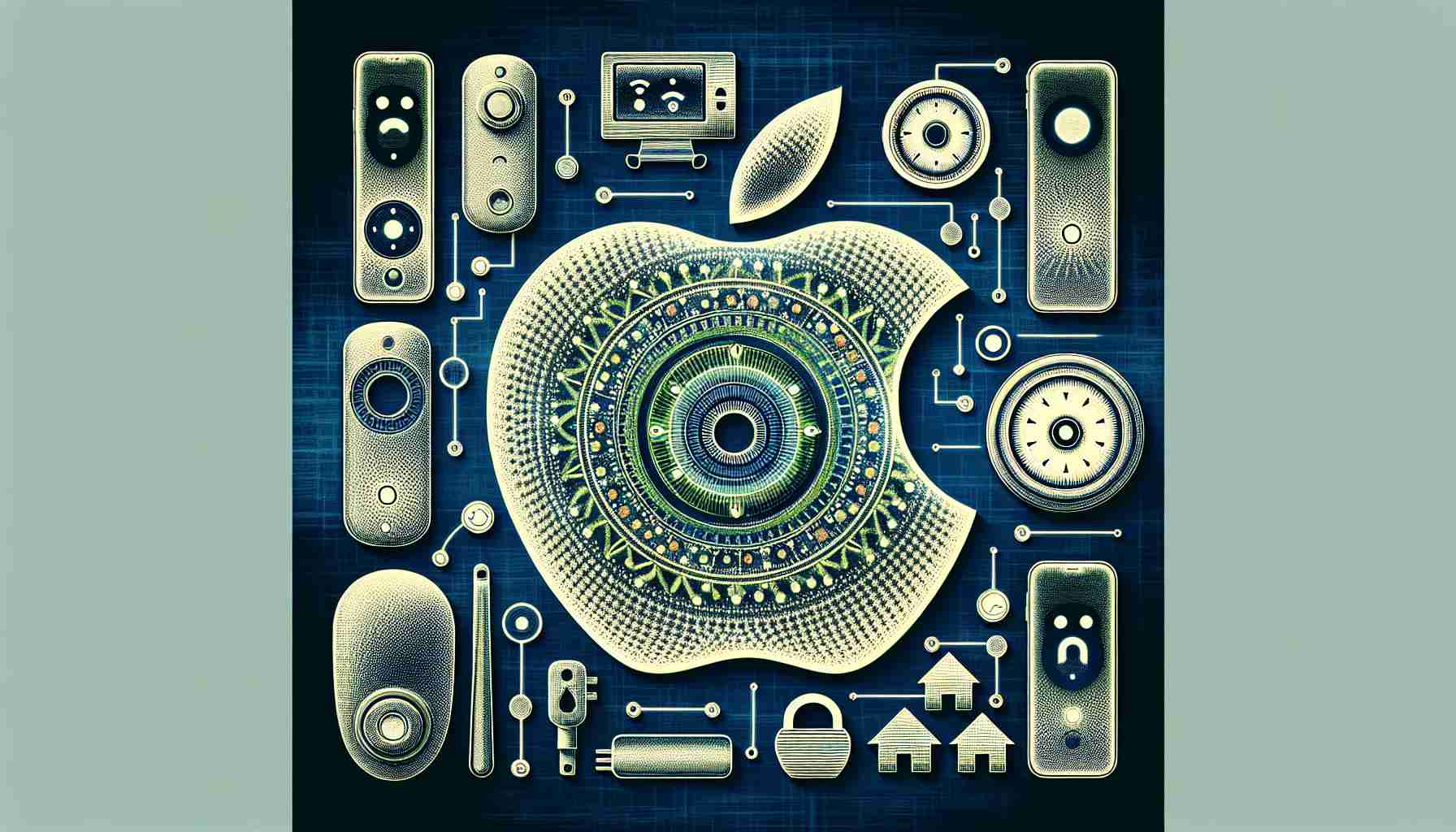Apple is positioned to make a significant move into the smart home sector, aiming to redefine its role in this competitive industry. Reports indicate that the tech giant is developing new software innovations alongside a smart display and a multifunctional tabletop robot. In a strategic shift, Apple is establishing a dedicated Home Ecosystem team, comprising engineers previously engaged in its discontinued car project, signaling a serious commitment to this endeavor.
At the core of Apple’s strategy is the integration of artificial intelligence, advanced display technology, and optimized software solutions. The initiative features a cutting-edge AI component designed to enhance home automation, offering sophisticated control over various applications and devices. Additionally, Apple is exploring the introduction of a versatile smart display, envisioned to enhance user experiences with functionalities such as streaming Apple TV Plus, conducting video calls, and managing productivity tools like Calendar and Notes.
A particularly intriguing aspect of this plan is the development of a tabletop robot. This innovative device is expected to incorporate a swiveling robotic arm paired with an intelligent display, leveraging AI to recognize users and adapt to their activities. Primarily, it will enhance home security while providing exceptional video conferencing capabilities and high-fidelity audio playback.
To support these advancements, Apple is also working on a new home operating system, termed homeOS, which aims to unify its smart technology ecosystem. As Apple embarks on this bold journey, the impact on the evolving smart home landscape remains to be seen.
Apple Sets Sights on Smart Home Domination: Exploring New Opportunities and Challenges
As Apple intensifies its focus on the smart home market, the company is poised to leverage its existing ecosystem while navigating significant challenges. The tech titan is not just making incremental improvements; it aims to establish itself as a dominant player through strategic innovations and aggressive marketing.
Key Questions and Answers
1. What technologies will Apple prioritize in its smart home initiative?
Apple is enhancing its offerings by focusing on artificial intelligence, machine learning, and seamless compatibility across devices. This includes leveraging its Siri voice assistant and integrating it into various home gadgets, ensuring that the user experience is fluid and intuitive.
2. How does Apple plan to differentiate its products from competitors?
Apple seeks to create a unique value proposition through its design aesthetics, user-friendly interfaces, and a cohesive ecosystem. Its approach of focusing on security and privacy—an ongoing concern in smart home ecosystems—can also set it apart from competitors like Google and Amazon.
3. What are the key challenges Apple may face?
Challenges include overcoming customer skepticism about privacy and data security, managing the complexities of interoperability with existing smart home products, and fostering developer interest in building apps for its upcoming platforms.
Advantages and Disadvantages
Advantages:
– Strong Brand Loyalty: Apple’s established user base is likely to adopt new products that integrate seamlessly with their existing Apple devices.
– Ecosystem Integration: Apple devices could offer unique interoperability, allowing seamless control across iPhone, iPad, Mac, and now smart home products.
– Focus on Security: Enhanced security measures may attract users who prioritize privacy, a critical concern in the Internet of Things (IoT) ecosystem.
Disadvantages:
– Cost: Apple products are often more expensive than competitor offerings, which could limit market penetration.
– Limited Customization: Unlike some platforms that allow extensive customization, Apple’s closed ecosystem may restrict user modifications.
– Competition: Intense rivalries from established competitors such as Amazon’s Alexa and Google Home could hinder Apple’s market entry.
Current Market Landscape and Innovations
In addition to the previously mentioned innovations, Apple is exploring partnerships with third-party developers to enhance its home automation applications. They are also considering integrating health monitoring tools into their smart home devices, aligning with current trends towards wellness tech.
Apple’s entrance into the smart home domain is informed by the impressive growth of the market, which is expected to reach $174 billion by 2025. The company is keen to capture a share of this expanding landscape.
Final Thoughts
As Apple embarks on this ambitious initiative, consumers and industry analysts alike will be watching closely to see how it addresses the significant challenges it faces while leveraging its strengths. Its commitment to innovation and quality could position it as a leader in the smart home revolution.
For further insights on Apple’s endeavors in technology and consumer electronics, visit Apple.














